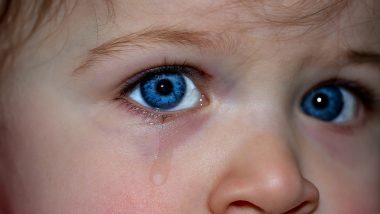New Delhi, April 6: The Covid-19 pandemic and subsequent lockdown generated a lot of fear and stress across all age groups. Children usually thrive under predictable conditions, but disruption led by the pandemic greatly impacted them physically and emotionally.
Online schooling, isolation, quarantine at home, lack of social interactions, lack of physical sports and parental angst have developed fears, depression, and boredom among children. While most parents, were involved in dealing with the uncertainty of the pandemic and putting all efforts to keep their family safe and sustainable, the emotional needs of children were somehow ignored, points out Jesal Sheth, Senior Consultant-Paediatrician, Fortis Hospital, Mulund. COVID-19 Likely To Impact Brain and Nervous System: New Research.
The experts discusses with IANSlife the impact of the pandemic on children and how to tackle it:
THE IMPACT OF THE PANDEMIC ON CHILDREN
The pandemic has changed the way children typically grow, learn, play, behave, interact, and manage emotions. Children have been observed to have conduct problems, peer problems, externalising problems, and general psychological distress. When compared with children who did not exercise, children with psychical activity had lower hyperactivity-inattention and less pro-social behaviour problems.
Moreover, from a more emotional perspective, they have a lot going around in their head, and the biggest worry for them is whether or not they will see their friends in school or will they get sick. The joint effect between lifestyle changes and psychosocial stress caused by home confinement perhaps aggravated behavioural problems in children.
In the long run, this can lead to an emotional breakdown among children, and the same may lead to these children resisting to return to school post-lockdown. This can happen primarily because children have lost their pre-lockdown routines and the loss of touch with their peers and mentors. In addition to this, the lockdown-related constraints can have a long-term negative effect on their overall psychological well-being.
Here's how you can help children cope with Covid-related stress:
Addressing fears -- Anxiety and emotional depression can be tackled by parents to some extent by addressing fears of children, talking about problems and possible solutions from the child's perspective
Spending time with grandparents -- Children who have grandparents can decide to spend some quality time with them
Create a routine -- Parents can maintain some routines even if confined at home. It is always good if parents and children can plan some activities together. Parents should also plan their children's tasks one at a time, involve them in various home activities, educate them about following hygiene habits and social distancing
Play Games -- Engage in indoor play and creative activities. In addition to these activities, children can be advised to be involved in household chores and understand their social responsibilities
Virtual play dates -- To keep them in touch with friends and classmates, plan a virtual party and playdates
Bad behaviours can be redirected and discussed -- Parents should pay more attention to the emotional well-being of the child. Keep emphasising Covid-19 measures like wearing a mask, social distancing, and frequent hand washing, as the pandemic is not over yet. Also, children should be encouraged to socialise with their friends and classmates through digital forums under the parent's supervision.
(The above story first appeared on LatestLY on Apr 06, 2021 09:55 AM IST. For more news and updates on politics, world, sports, entertainment and lifestyle, log on to our website latestly.com).













 Quickly
Quickly





















